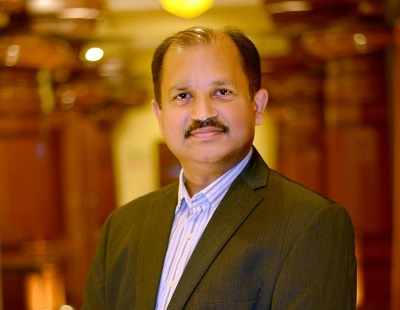 Incorporated in 1992, Mphasis is an Information Technology solutions provider specializing in cloud and cognitive services. The company today has over 28000 employees.
Incorporated in 1992, Mphasis is an Information Technology solutions provider specializing in cloud and cognitive services. The company today has over 28000 employees.According to Debashis Singh, CIO, Mphasis, the company’s internal technology function is aligned with the enterprise goal.
Some of the other priority initiatives that Singh is driving across the enterprise are Voice-based virtual assistant providing anytime employee support; SASE enabling secured access from anywhere; AI driven BI bringing the intelligence for efficient operations; Continuous Cloud Journey (Cloud Native, SaaS migration etc) moving from servers to API and microservices based services; Low Code – promoting citizen developers/development for enterprise use cases reducing application development to days from months.
Cognitive technologies like artificial intelligence, machine learning, deep learning, and analytics have been the core strength of Mphasis and one of the biggest enablers of the IT firm’s Front2Back Transformation framework.
“In the current digital world, we strongly believe AI/ML is an integral component of every business process optimization and process automation. Artificial Intelligence and human intelligence co-exist seamlessly in our business environment, be it Hire to Retire, Order to Cash, Procure to Pay, and so on to name a few business processes,” said Singh.
Employee experience being a key strategic driver, the company uses AI/ML technologies to learn and provide intelligence for a quick decision-making process. This ensures quicker turn around and removes human dependencies from many of Mphasis’ processes, resulting in greater employee satisfaction.
Talking about data democratisation within an organisation, Singh said that digital transformation starts with data.
“In the current world of Hyper-personalization, data is the most critical driver for any analytics to provide the required intelligence. For any enterprise, connecting all data sources and creating models out of it brings out hidden intelligence and makes the organization innovate at a faster pace,” Singh maintained.
Mphasis has been an early promoter of data democratization where we had created a framework for sourcing data and putting up guard rails to access the same based on roles and responsibilities; at the same time enabling users in the ecosystem to consume, analyze and apply intelligence in self-service mode without dependency on back-end IT, according to Singh.
Hybrid cloud to become business as usual
With the onset of the pandemic, Mphasis is witnessing an increase in Cloud based computing models, which allows for Cloud Adoption in all possible flavors: SaaS / PaaS / IaaS for enterprises across industries.
“Now, it is just a matter of time and no longer a question of whether to make the shift. There is a strong urgency for Cloud Adoption in the industry as well. We believe that enterprises born on cloud will push cloud adoption across the industry and challenge the key large players to meet the speed and agility enabled by the cloud,” Singh averred.
For enterprises, Hybrid Cloud will become business as usual soon, if not already, believes Singh. There are multiple drivers for the hybrid approach – different technologies, customer contractual requirements, statutory and compliance needs, and so on, which will force large enterprises to work with different SaaS/PaaS and on-premises Hybrid models to align based on business priorities.
With Hybrid cloud now being a key part of IT Strategy for enterprises, Mphasis uses cloud services from multiple cloud providers including Oracle.
As part of its Application modernization and HR Transformation journey, Mphasis’ HRMS runs on Oracle Cloud with SaaS and PaaS combination. Additionally, the ERP and Database run on Oracle Cloud via a PaaS and IaaS combination.
“Legacy modernization, improved security and agile architecture of Oracle Cloud helps Mphasis in the following key areas: 3x improvement in ERP performance – quicker turnaround for complex processes; High availability of Database (Database Cloud Service, a PaaS service); Easy integration across other enterprise tools and system,” he added.



